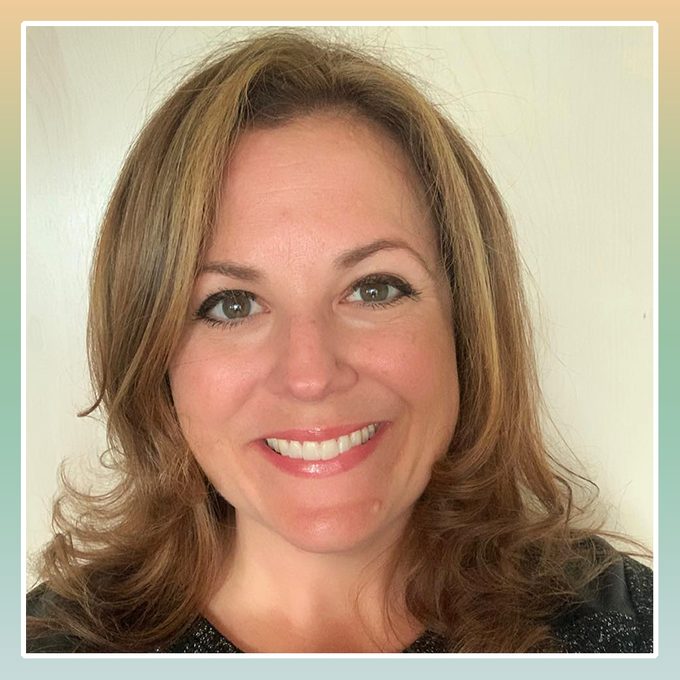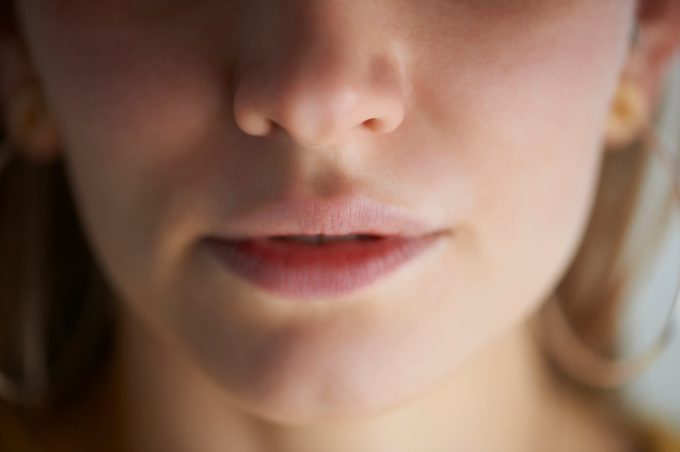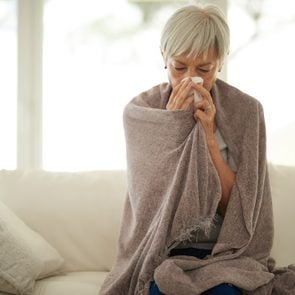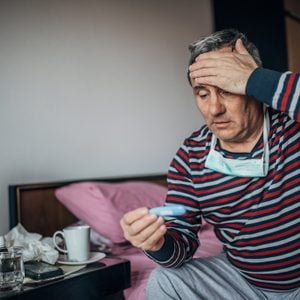What It’s Like to Lose Your Sense of Taste and Smell from Covid-19
Updated: May 18, 2021
More than 200 days after she was first diagnosed, a Covid-19 "long-hauler" shares her experience of virus-induced smell and taste loss, as well as the many strange, frustrating and scary symptoms.
Among the common Covid-19 symptoms, loss of taste (ageusia) and loss of smell (anosmia) often occur simultaneously. John Hayes, PhD, director of the Sensory Evaluation Center and professor of food science at Pennsylvania State University, is part of two different efforts to study Covid-19 patient screening and recovery. He says current estimates suggest 45 to 75 percent of Covid-19-positive individuals lose their sense of smell—often without other symptoms, such as fever, coughing, aches, and fatigue. This suggests that perhaps smell loss could be used as an early screening sentinel.
“At least in some people,” Hayes says, “it seems like there is true taste loss, which is normally extremely rare with other viral illnesses… we have now shown that sudden smell loss is a better predictor of Covid-19 than either fever or cough.” Initial data indicates that roughly 80 percent of people recover within four to six weeks. But for others, the smell and taste recovery process may be ongoing. (Here’s what losing your sense of smell from Covid-19 may mean about your prognosis.)
Amy Wright, 44, was likely exposed to Covid during travel in late February 2020. The learning and development manager has felt many symptoms throughout the course of her illness, and she is still dealing with the after-effects of the disease as a Covid-19 “long-hauler“—people who experience symptoms months after their original infection. Here, Wright shares the trajectory of her battle with Covid-19, her strange experience with the losses of smell and taste.

Covid-19 detection and diagnosis
As we learn more and more about this virus, my timeline becomes a moving target. I’ve been feeling sick and long-hauling from Covid for months. My treatment team is not 100 percent convinced, but they think my original symptom was the initial loss and now-diminished senses of taste and smell. I first noticed the loss of smell while on a hike with my husband. He said how wonderful the vegetation smelled, including the roses. Roses are special to me; they remind me of my grandmother and her garden. I remarked that I could barely smell them, and he said that I worked too hard and I better stop and smell the roses more. I will never forget the impact of that statement. I buried my nose in that rose and took a big deep sniff. I said, “I swear, I can hardly smell them.” This was March, and loss of taste and smell was not yet on the [symptom] list and was not being discussed, so I had no idea it was part of Covid. By this time, I was working remotely and so was my husband, thankfully. For the next few days, I kept saying he was forgetting to add scoops to the coffee and the food needed more salt. Nothing made sense to me yet. Two days later, my husband spiked a fever out of nowhere. He immediately started coughing and felt horrible.
My husband was confirmed Covid-positive. While he was waiting for his test results to come in, his taste and smell started diminishing too. Due to a burdened health care system, I was an immediate positive diagnosis based upon symptoms only (lost or diminished sense of taste and smell for more than 10 days). I was admitted to the ER on March 22 for Covid complications, specifically crushing chest pain and shortness of breath. I watched Covid consume both my husband and myself. I looked death in the eyes the night before we went to the hospital. I was on eggshells, sick myself, waiting to hear if he was going to be intubated as his fever spiked to 105.8 and they administered experimental drugs. My Covid experience was traumatic. It was soul-crushing, but we made it through, and we are blessed. Now we are long haulers, and that’s a new kind of trauma.
“Main symptoms” is a loaded question for a long-hauler. It’s a loaded question even for scientists and the medical community. The list continues to grow as we learn more about Covid. This stealthy virus is baffling the world. That said, my main symptom in the first two weeks of Covid was loss of taste and smell, and it’s stuck with me through these 200 days of long-hauling. It’s been a slow roll of new symptoms that sneak up on me.
A maze of symptoms and physical impacts
My symptoms and the physical impacts of Covid affect my quality of life every day. I’ve had shortness of breath and labored breathing; I developed a cough; my 20 years of controlled asthma without need for medication became a full-blown, exacerbated flare-up. I also got a rash on my legs.
I’ve also had severe abdominal cramping and every gastrointestinal issue imaginable: vomiting, diarrhea, gas, bloating―it felt like there was something inside me. (I have post-Covid IBS still.) At this stage, I began experiencing visual focus problems and blurry vision at times. After three months, brain fog set in and I still experience this issue. I developed paresthesia [prickling, tingling, itching, burning or cold, skin crawling, or impaired sensation] fully on the left side of my body and across my entire face. My skin intermittently feels like someone is stretching it across my face or pulling it up my calves like a pair of boots. Sometimes it feels like I am walking around with wooden legs and like my fingers have no nerve endings.

Figuring out what’s wrong
I still have trouble deciphering which sense is completely gone, especially since they are so closely related. I usually either have no ability to taste or smell, or it is strongly diminished. If—and that’s a big if—I have a random smell, it’s usually distorted in some way. Peppermint essential oil smells like acetone; my little puppy smells like chalk; citrus fruit tastes like gasoline or kerosene; animal protein tastes like metal; red wine tastes like disinfectant; red bell pepper tastes like liquid smoke. I have olfactory hallucinations, which are imagined unpleasant odors. With hallucinations, no physical stimuli are needed. They are frequent and intense.
The hallucinations magically manifest out of nowhere. Poof! The smell hits you and it’s overpowering. Sometimes it takes your breath away or makes you gag. I tell my brain to think of something pleasant; I beg for a system override. Intellectually, I know these smells aren’t real. I pinch my nose; I let go. Still acetone. It starts dissipating, eventually. Sometimes I’m able to distract myself and it goes away. The hallucinations just have to run their course.
On the mend, but still struggling
Some days I improve, there is less inflammation or some new medication my otolaryngologist has prescribed, such as high-dose steroids or high-dose antibiotics for secondary chronic sinusitis caused by Covid inflammation. I can taste texture and know that something tastes good, but I still have difficulty with my palate. I miss flavor. I miss spices—any and all types. I miss waking up to the smell and taste of coffee. It was like my alarm clock, a symbol of my husband’s affection—a simple act and love language to say “good morning, sweetheart.” I miss red bell pepper. It’s my favorite, and now it tastes like mold and liquid smoke. I miss pickles; they taste like vinegar now.
I used to be a foodie and enjoyed going to restaurants and trying new things. Now I’m nervous about flavor combinations because too much flavor can set off a gustatory illusion and the whole meal may end up tasting like disinfectant or something weird. Everything about food has become more challenging, stressful, and less enjoyable.
[Learn more about parosmia after Covid-19, another complication of the virus.]
Right now, my brain is doing most of the work for me through memory by telling me what I’m eating. I can taste salty, bitter, and spicy flavors, but it’s very basic. I bought mint chocolate chip ice cream the other day and told my husband, “It’s cold and crunchy with these bitter pieces, and intellectually I know it’s chocolate, but I sure don’t taste chocolate in my mouth like I used to.” Life for me is pretty vanilla―and I can’t even taste that right now. Since my smell and taste have been taken away, I realize how precious and meaningful the gift of those senses are.
Covid-19 support and advocacy
My husband and I have made it through the worst, and we are so fortunate to get this second chance and new lease on life. We have to make it count! We’ve been given this gift for a reason and purpose. I have my breakdowns because Covid makes you emotional, but this warrior gets stronger and finds groups like Survivor Corps in order to be a voice for the Covid long haulers. The Survivor Corps has helped me connect and learn from other long haulers, feel a sense of community and support, have access to more information and resources, and find an advocacy platform for my voice to be heard and to share my story.
We need advocacy. This is not the flu, and those who think that will get a very rude awakening if they get a strain of it like my husband and I had. My otolaryngologist says we don’t know enough about this virus yet, and they cannot make any promises [about regaining taste and smell]. We’ll try some treatments and see what happens. We are committed to fighting to get my senses back and to exhaust all resources trying. The bottom line is, I still cannot taste and smell what’s really there. This is why I’m passionate about education, and why it’s important people understand the gravity of Covid-19.



